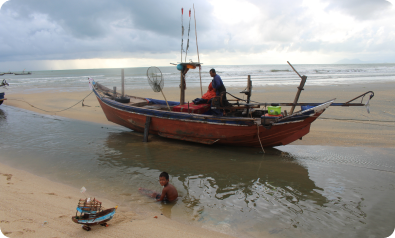The research that underpins SEAP was commenced in late 2020. Through this original internal regional mapping project, we aimed to:
- Provide an overview of the statelessness situation in the Asia Pacific region.
- Gain a broad understanding of the legal and administrative frameworks as they apply to citizenship regimes of all countries across the Asia-Pacific region, and to begin to see the disjunct between these regimes on paper and in practice.
- Generate more attention to the statelessness problem in the region.
- Strength relationships with, and gather a database of, key stakeholders at national, regional and international levels, building on the network members of SNAP but ensuring that we expanded beyond our members to include new organizations, especially those that were previously overlooked.
- Identify good practices from which we could learn, and the needs of organizations and the gaps in the current work being undertaken.
- Identify specific countries and contexts where NFA could focus on considering the scale of the problem in the region and the limited capacity of NFA.
- Identify areas of collaboration among stakeholders and areas of further research on the issue.
Both qualitative and quantitative data was gathered through a combination of desk research, consultations and bilateral meetings.
Desk Research
Commenced in December 2020, desk research was undertaken drawing on pre-existing research, reports and national mapping projects with the aim to review and summarize national and regional situations of statelessness. This included mapping relevant communities and stakeholders, and conducting a broad analysis of legal and administrative frameworks. Through the desk research, NFA developed sub-regional reports that form the basis for SEAP.
Survey and Consultations
In November 2020, NFA launched a survey on ‘Advancing Rights and Protections for Stateless Populations, Refugees, and Communities with Precarious Legal Status’ drafted in collaboration with Open Society Justice Initiative (OSJI) and Refugee Solidarity Network (RSN). The survey aimed to gather information and connect to stakeholders across the region. We received 47 unique responses to the survey from respondents working across 14 different countries or regions being: Afghanistan, Australia, Bangladesh, Cambodia, India, Indonesia, International, Malaysia, Myanmar, Nepal, Pakistan, Philippines, Southeast Asia, and Thailand. Following the survey, NFA coordinated four separate consultations in collaboration with OSJI and RSN. While each consultation had a specific thematic focus, all were part of a broader examination of good practice in the region within the framework of “Advancing Rights and Protections for Stateless Populations, Refugees, and Communities with Precarious Legal Status”.
Bilateral Meeting and Development of Partnerships
Throughout 2021, NFA conducted bilateral consultations with potential partner organizations, who were identified through the regional consultation series, former SNAP members or recommended by current contacts. NFA met with over 30 potential partners based in a number of countries across the Asia-Pacific region including Bangladesh, Cambodia, India, Indonesia, Malaysia, Nepal, Pakistan, and Thailand. In addition, the NFA collaborated on the COVID-19 CESF Impact report “Together We Can: The Covid-19 Impact on Stateless People & A Roadmap for Change”
From the data gathered through this process, in the second half of 2021, sub-regional summaries covering Australia, Asia, East Asia, Melanesia, Micronesia, Polynesia and South and Southeast Asia were drafted.
Through these summaries we aimed to gather and analyse the available literature and reports regarding stateless communities and populations across the Asia-Pacific region. This research compared the official populations number provided by states to the United Nations High Commissioner for Refugees (‘UNHCR’) against other publicly available data of population numbers.




